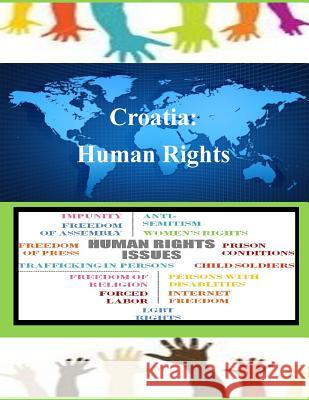Croatia: Human Rights » książka
Croatia: Human Rights
ISBN-13: 9781502838384 / Angielski / Miękka / 2014 / 30 str.
Croatia: Human Rights
ISBN-13: 9781502838384 / Angielski / Miękka / 2014 / 30 str.
(netto: 56,43 VAT: 5%)
Najniższa cena z 30 dni: 55,53 zł
ok. 13-18 dni roboczych.
Darmowa dostawa!
The Republic of Croatia is a constitutional parliamentary democracy. Legislative authority is vested in the unicameral parliament (Sabor). The president serves as head of state and nominates the prime minister, who leads the government. Domestic and international observers stated that parliamentary elections held in 2011 were in accordance with international standards. Security forces reported to civilian authorities. Security forces did not commit human rights abuses. During the year the most important human rights problems in the country were societal discrimination and some instances of violence directed against members of ethnic minorities, particularly ethnic Serbs and Roma, which discouraged the return of displaced persons to their homes and delayed recovery from the conflict of the early 1990s. Hostility and violence directed at lesbian, gay, bisexual, and transgender (LGBT) persons continued during the year. Corruption remained a deep-seated problem. Other human rights problems included judicial delays; unresolved property restitution claims stemming from World War II, the Communist era, and the wars of 1991-95; public displays of profascist sentiments and vandalism of Holocaust memorials; and human trafficking. The government took significant steps to prosecute and punish officials who committed abuses of human rights. There were no reports of impunity involving the security forces during the year.











